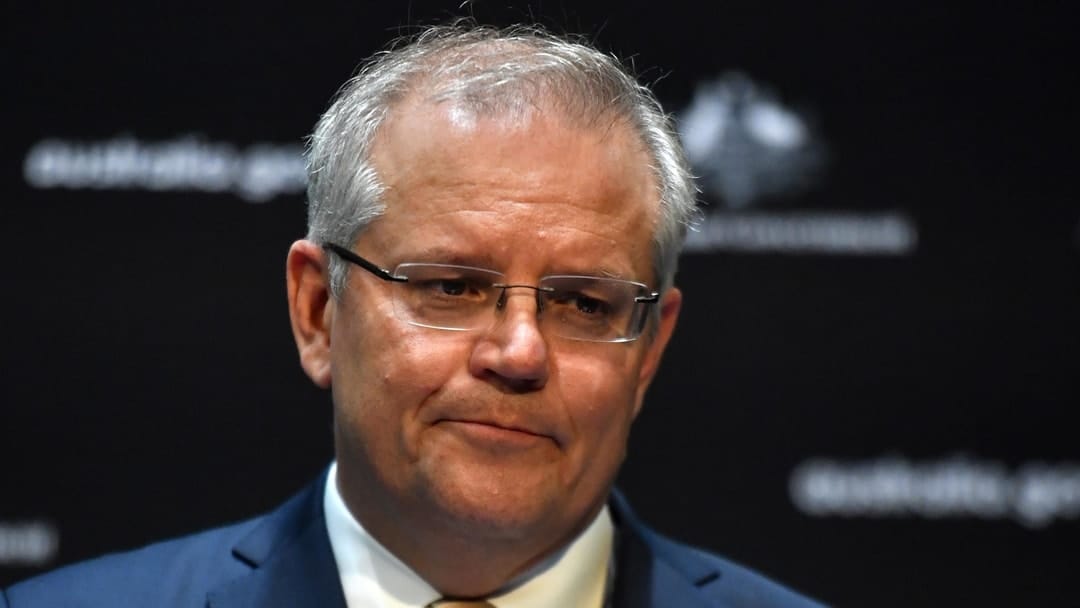
According to some reports, Scott Morrison's popularity has spiked, thanks to his handling of the COVID-19 crisis. One thing that has distinguished Morrison's work in this time has been a willingness to do hard emotional labour on TV.
Back in April, the Prime Minister teared up at the thought of mourner-free funerals. Knowingly or not, the Prime Minister's efforts to show empathy places him squarely within an alternative history of political communication.
This history sits aside recent developments in political communication research to tell us that Morrison’s willingness to be vulnerable may well be vital to maintaining public trust and goodwill.
We're told that we face the most challenging social crisis since the Great Depression. Interestingly enough, historians argue that American President Franklin D. Roosevelt managed the incredible feat of becoming more popular as the crisis deepened, thanks to his skill in using radio to convince voters that he felt their pain. FDR's famous "Fireside Chats" debuted a style of politics that enchanted voters through the cultivation of intimate relations.
While we often associate politics with the cut and thrust of the argument, there are sound reasons for thinking that there's a gentler path to public trust; one that lets the public into the politician's emotional life.
Read more: Could the COVID-19 crisis be the making of Scott Morrison?
The idea that political communication is as much about convincing emotional performances as anything soberer has gained traction in recent years. Still, to date, much of the focus has been on anger. Journalism professor Karin Wahl-Jorgensen notes Donald Trump has won notoriety and favour by being always angry about everything everywhere; especially Twitter. One could be forgiven for thinking that Trump's success, swept in on a tide of tweeted bile, has firmly consigned those who would empathise via a legacy medium such as TV to history's vaults.
But reports of the political death of TV and sympathy may well have been exaggerated.
The ability to recognise and use media to perform empathy, if you will, is far more than an empty political trick.
Morrison’s chagrin at funeral restrictions probably rang true with most of us because we know him to be a religious man. And that isn’t surprising, because letting the media "behind the curtain" has been a significant political strategy since the 1960s. According to some studies, politicians operating in liberal democracies with well-developed media industries have, by and large, realised the political value of putting their personal lives on display.
Doing things with the family in front of the cameras, such as celebrating birthdays, going on holiday, or going to church, has proved to be a handy way to create positive images without having to handle pesky political press corps.
Of course, this strategy proved disastrous for Scott Morrison during the recent bushfires. But still, the PM has persevered with letting the public in. Now he seems to be reaping some of the benefits.
None of this is to suggest that there's anything disingenuous about Morrison’s media relations. On the contrary, there are many reasons for believing that successfully communicating factual information about what Australians should and should not do amid the ongoing crisis relies on a capacity to get the public emotionally onside.
In this sense, perhaps Morrison’s "comeback" can be attributed to a medium that has somewhat faded from the spotlight in talk of political communication.
Trendy as the Twitter spat might be, Morrison’s use of the conventional TV press conference and political interview to cultivate sincerity and trust reminds us that the drawing power of "old" media remains a force.
But more to the point, the ability to recognise and use media to perform empathy, if you will, is far more than an empty political trick.
As much as we're constantly told that we live in unprecedented times, we've been here before.
Research on media influence arguably began with studies of how to teach the public to take better care of themselves, health-wise.
One of the most significant findings from the field of health communication is that audiences often come to media looking for meaning, not information. That is, people often wonder about the social impact of illnesses. For these people, media figures who understand their feelings are vital. The upshot is, if this is a story about how television can develop trust, then this isn't just good news for Morrison.





